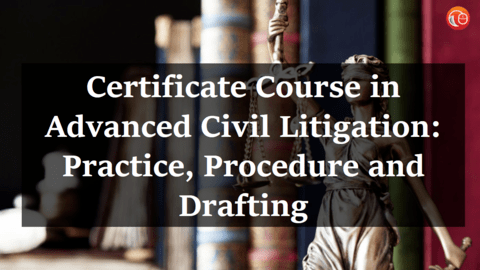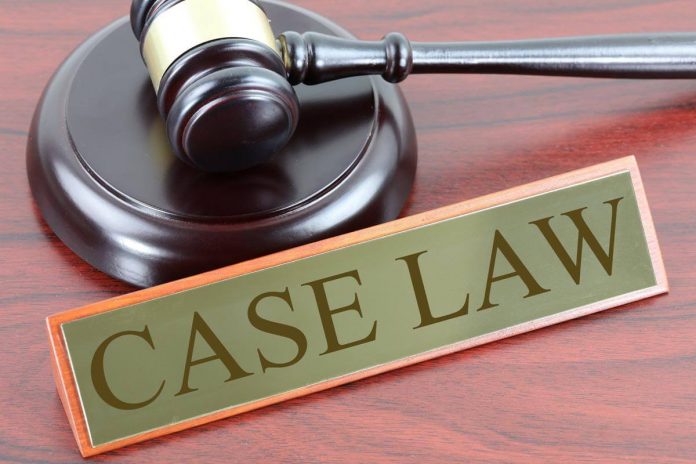This article is written by Harman Juneja, a student of Dr. B.R. Ambedkar National Law University, Rai, Sonepat. The article talks about extending protections to the accused in light of the case of Mian Abdul Qayoom v. The State Of J&K.
Table of Contents
Introduction
The article is based on a recent case that raised important questions about the problems and issues that the accused faces while going through a trial. Although the case was related to preventive detention, it covers the trouble of every undertrial person in the country.
India’s criminal law is merely a mirror of the Victorian heritage that the Britishers left behind. Only a few amendments have been made to the law over time to appease pressure groups and vote banks. These laws, which have been in place for nearly seven decades, have not given any attention to the predicament and socioeconomic situations of more than 50% of the country’s people, who live in abject poverty. India, being a poor developing country, needs something other than a carbon duplicate of the laws in developed western countries.
Mian Abdul Qayoom v t.he State Of J & K
Facts
In the case of Mian Abdul Qayoom v. the State Of J&K (2020), the detainee was a famous senior advocate who had been practising in the High Court of J&K for the past forty years and was also the President of the J&K High Court Bar Association in Srinagar. It was submitted by the petitioner that the detenu had been previously placed under preventive detention in the year 2010, and after imprisonment in various sub jails in J&K, the detention order was forced to be withdrawn. The detenu was reported to have been caught during the intervening night of 4th/5th August 2019 and held in Police Post Rangreth for two days. After that, he was moved to Central Jail, Srinagar. On learning of this, the General Secretary of the J&K High Court Bar Association, Srinagar, filed a petition in which the respondents were served with a notice demanding that they reveal the authority under which the detainee was imprisoned.
Issue of the case
The issue before the judges was whether the detention by the detaining authority was justified or not.
Arguments of the parties
The petitioner argued that the detention was not justified. The detainee was not informed of the grounds on which he was detained, and the detention was based on the FIR’s registered between 2008 and 2010, to which he was already detained in 2010. The petitioner also claimed that clear and sufficient reasons were never stated while he was in detention, and how his acts could endanger public life or property.
To these arguments, the respondent stated that detenu was placed under the provisions of the J&K Public Safety Act, 1978. Based on his separatist beliefs and previous unlawful conduct that were considered to be detrimental to maintaining public order, his arrest would inspire the general population to resort to violence, upsetting public order. As a result, the detaining authority stated that it was necessary to invoke relevant portions of the 1978 Act and detain the detainee to prevent him from participating in conduct that would jeopardise public order.
Judgment
It was held that the law of preventive detention is not unconstitutional since it has no objective criterion for ordering preventive detention, and instead relies on the executive’s subjective judgment. This viewpoint is based on the fact that preventive detention is not punitive, but rather preventative, and is used to prevent a person from engaging in actions that are seen to be harmful to specific goals that the law of preventive detention aims to regulate. As a result, preventive detention is based on suspicion or expectation rather than proof.
The subjective satisfaction of a detaining authority to detain or not detain a person is not susceptible to a court’s objective evaluation. The merits of an administrative decision to detain a person should not be scrutinised in court. Therefore the petition was dismissed by the court.
Preventive detention
Preventive detention, as defined by Section 151 of the Criminal Procedure Code of 1973 (CrPC), is an action taken based on suspicion that the individual in question may commit some wrongdoing. If a police officer has information that an individual is about to commit a crime, he or she can be arrested without the involvement of a magistrate and the need for a warrant.
Rights of the detainee
The Indian Constitution’s Article 22 protects citizens against the abuse of police authority to make arrests and detentions. In some circumstances, it offers protection from arrest and detention. The various provisions under the act are:
- Article 22(2) says that every person who is arrested and held in custody must be brought before the nearest magistrate within twenty-four hours of their arrest, excluding the time required to travel from the place of arrest to the magistrate’s court. No one may be held in custody beyond that time without the permission of a magistrate.
- The Article’s clause (4) states that no one can be held for longer than 3 months unless a bench of High Court judges or an advisory board chooses to increase the time limit.
- The detained individual should be informed of the grounds for his or her detention under the order and given the chance to make a representation against the case, according to clause (5) of Article 22.
Problems faced by the accused under trial
India’s criminal law is a relic of the colonial era. It is a hostile environment for the impoverished and weaker members of society. The law continues to serve and defend the demands of the wealthy while ignoring the needs of the poor. As a result of this bias, wealthy people have been able to elude the law, and the prison population is disproportionately made up of the poor. The high expense of entry to the temple of justice, combined with the hierarchy of courts and appeals after appeals, has resulted in a scenario where the poor are unable to access it.
A person in police custody or awaiting trial does not forfeit their fundamental rights and human rights, just because he or she is incarcerated. This is founded on the concept that hundreds of guilty people should be acquitted, but one innocent person should not be punished. The accused should be considered innocent until the prosecution proves them guilty but sometimes they get labelled guilty even without trial due to media or personal biases. There are a lot of problems that the accused seem to face while being on a trial and these issues are:
- Slow trials- This is one of the biggest problems faced by persons going to trial and not only to the accused but also to the aggrieved party. People sometimes face injustice but still don’t take the matter to court as they think it will take a lot of time to get the result which in turn requires a lot of effort and money. For the accused, it is a long period of stress and humiliation to be on trial for such a long period and having to live with the constant fear of going to jail.
- In India’s criminal justice system, more than 0.2 million undertrial offenders have been held in prison for years, often for longer than the maximum punishment for the offence they committed.
- Overcrowding and a lack of appropriate space to house prisoners in safe and healthy settings affect the majority of jails. It is a reason for many other health problems as well.
- Prisons are often hazardous environments, with a high rate of group violence and police mistreatment. Meek and first-time offenders are subjected to torture and forced to perform menial labour. All of this violates the UN Standard Minimum Rules for Prisoner Treatment
- The family is frequently thrown into poverty as a result of the main breadwinner’s long absence. The family is also subjected to social stigma. All of these factors encourage youth to engage in delinquent behaviour and be exploited by others.
This is just an overview of the problems faced and the accused, while in the trial, face a lot of unsaid and unheard problems.
The way forward
People who are not proven guilty mustn’t start feeling like a guilty subject or a prisoner, and to accomplish this, their rights must be protected. So some suggestions for the same are as follows:
- We don’t have to look far. All that remains is to consolidate the ideas and suggestions made by various expert groups and institutions and to begin putting them into action. In its 268th report, the Law Commission suggested that police officers avoid making unnecessary arrests and that magistrates stop issuing mechanical remand orders.
- The bail requirements under Section 436A of the CrPC should be changed, according to the Law Commission’s 268th report, to ensure early release of under-trials. For the people accused of crimes, punishable by up to seven years of imprisonment, those who had served one-third of the maximum sentence should be freed. Similarly, the people accused of offences punishable by more than seven years of imprisonment, who were awaiting trial for offences punishable by more than seven years in prison, should be released on bail if they had served half of their sentence.
- Prisoners awaiting trial should be housed separately from those who have been convicted. Even among undertrial prisoners, thorough and scientific classification is required to prevent the contamination of first-time and petty offenders into full-fledged and severe criminals. They should never be held accountable for the actions of convicted criminals.
- Institutions that house pretrial detainees should be as close as feasible to the courts.
- The strict application of Section 167 of the Criminal Procedure Code, which establishes a time limit for police inquiry in the case of suspected prisoners awaiting trial. The maximum period within which the police investigation must be finished and a charge sheet placed before the court is set out in Section 167 Cr.P.C. For offences punishable by death, life imprisonment, or imprisonment for a term of not less than 10 years, this duration is 90 days; for all other offences, it is 60 days.
- The number of judges and magistrates should be increased immediately. At the very least, there should be 107 judges per million Indians. Automatic remand extensions must come to an end, as they are issued only for the convenience of the authorities.
- It is recommended that video conferencing between prisoners and courts be encouraged and can even hold special courts in prisons for inmates who have committed minor offences
Conclusion
As you may know, the presumption of innocence is a legal principle that states that everyone accused of committing a crime are presumed innocent unless proven guilty. This principle’s practicality is not much seen in India which is a very serious issue. The article shows how the accused suffer.
The plight of the under-trial persons should be taken into consideration and new policies should be made at the earliest. Separate jails for undertrials, or at the very least segregating them from convicts, would prevent hardened offenders from having a negative impact on undertrials. This type of segregation would also influence the attitude of jail officials and the general public toward those who are on trial. These kinds of changes can make the life of the innocent better and can protect their rights.
Reference
- https://indiankanoon.org/doc/6483200/
- https://www.tribuneindia.com/news/nation/toolkit-case-delhi-court-extends-protection-from-arrest-granted-to-another-activist-224154
- https://www.indialegallive.com/is-that-legal-news/all-you-need-to-know-about-preventive-detention/
- http://www.legalservicesindia.com/article/1280/The-Problems-of-Undertrials.html
Students of Lawsikho courses regularly produce writing assignments and work on practical exercises as a part of their coursework and develop themselves in real-life practical skills.
LawSikho has created a telegram group for exchanging legal knowledge, referrals, and various opportunities. You can click on this link and join:
https://t.me/joinchat/J_0YrBa4IBSHdpuTfQO_sA
Follow us on Instagram and subscribe to our YouTube channel for more amazing legal content.

 Serato DJ Crack 2025Serato DJ PRO Crack
Serato DJ Crack 2025Serato DJ PRO Crack










 Allow notifications
Allow notifications


